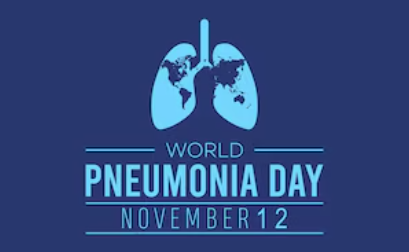World Pneumonia Day is Observed on November 12
Pneumonia remains a critical global health issue. It affects millions, especially children under five. Every 20 seconds, a child dies from this preventable disease. World Pneumonia Day, celebrated on November 12, aims to raise awareness and promote action. Established in 2009, this day marks the need for effective strategies to combat pneumonia.
About Pneumonia
Pneumonia is a serious respiratory infection. It inflames the lungs and leads to fluid accumulation. Symptoms often mimic those of the flu or cold. Common signs include persistent cough, phlegm production, rapid breathing, and chest pain. Severe cases may involve nausea and dizziness.
Key Causes of Pneumonia
Pneumonia can arise from various sources. The five primary causes are bacteria, viruses chemicals, Mycoplasma, and fungi. Bacterial pneumonia is often the most severe. Viral pneumonia, while generally milder, can still pose important risks. These causes are crucial for effective treatment.
Treatment Options
Effective treatment for pneumonia is essential. Most patients require antibiotics, typically administered orally. A proper medical consultation is necessary to determine the appropriate antibiotic. Hospitalization is reserved for severe cases. Early intervention can improve outcomes.
Prevention Strategies
Preventing pneumonia is vital to reducing its impact. Vaccinations play important role in protection. They guard against pneumococcal infections and other respiratory diseases. Immunisation is especially important for vulnerable populations, such as children and the elderly.
Global Initiatives
Several global initiatives focus on pneumonia prevention. The Global Coalition Against Child Pneumonia launched the ‘Stop Pneumonia’ campaign. This campaign raises awareness and advocates for legislation. The ‘Every Breath Counts’ partnership supports pneumonia diagnosis and treatment. These collaborations aim to save lives and reduce mortality rates.
Early recognition of pneumonia symptoms is critical. Misdiagnosis can lead to complications. Awareness of symptoms can facilitate timely medical intervention. Educating communities about pneumonia can save lives.
Role of Nutrition and Healthcare Access
Malnutrition increases pneumonia risk. Improving nutritional standards can reduce susceptibility. Access to quality healthcare is also vital. Strengthening healthcare systems in low- and middle-income countries is essential for combating pneumonia effectively. By understanding pneumonia and implementing preventive measures, communities can reduce its impact. Awareness, education, and collaboration are key to fighting this preventable disease.
Important Facts for Exams:
- GAPPD – The Global Action Plan for the Prevention and Control of Pneumonia and Diarrhoea aims to reduce mortality rates in developing nations. It addresses respiratory infection causes.
- Mycoplasma: Mycoplasma is a genus of bacteria without a cell wall. It can cause atypical pneumonia. This type is often milder but can still lead to severe complications.
Month: Current Affairs - November, 2024
Category: Health Current Affairs


